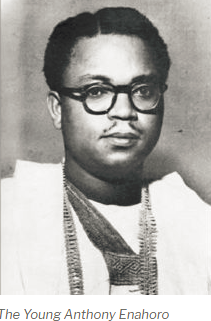
Nigeria Indipendence Day.
Il Giorno dell’Indipendenza è una festa nazionale ufficiale in Nigeria, celebrata il primo ottobre. Contrassegna la proclamazione di indipendenza della Nigeria dal dominio britannico il 1° ottobre 1960.
1960-2020 60 years of Indipendence
Nigeria was granted independence on October 1, 1960. A new constitution established a federal system with an elected prime minister and a ceremonial head of state. The NCNC, now headed by Azikiwe (who had taken control after Macaulay’s death in 1946), formed a coalition with Balewa’s NPC after neither party won a majority in the 1959 elections.
Balewa continued to serve as the prime minister, a position he had held since 1957, while Azikiwe took the largely ceremonial position of president of the Senate. Following a UN-supervised referendum, the northern part of the Trust Territory of the Cameroons joined the Northern region in June 1961, while in October the Southern Cameroons united with Cameroun to form the Federal Republic of Cameroon. On October 1, 1963, Nigeria became a republic. Azikiwe became president of the country, although as prime minister Balewa was still more powerful.
Chief Anthony Eromosele Enahoro (22 July 1923 – 15 December 2010) was one of Nigeria’s foremost anti-colonial and pro-democracy activists. He was born the eldest of ten children in Uromi in the present Edo State of Nigeria. His Esan parents were Anastasius Okotako Enahoro (1900-1968) and Fidelia Victoria Inibokun née Ogbidi Okojie (1906-1969). Enahoro has had a long and distinguished career in the press, politics, the civil service and the pro-democracy movement. Educated at the Government School Uromi, Government School Owo and King’s College, Lagos, Enahoro became the editor of Nnamdi Azikiwe‘s newspaper, the Southern Nigerian Defender, Ibadan, in 1944 at the age of 21, thus becoming Nigeria’s youngest editor ever. He later became the editor of Zik’s Comet, Kano, 1945–49, associate editor of West African Pilot, Lagos, and editor-in-chief of Morning Star from 1950 to 1953.

In 1953, Enahoro became the first to move the motion for Nigeria’s independence which was eventually granted in 1960 after several political setbacks and defeats in parliament. Enahoro has been regarded by academics and many Nigerians as the “Father of Nigeria State”. However, his motion for Nigeria’s Independence suffered setbacks in parliament on several occasions with the northern members of parliament staging a walkout as a consequence of the motion. Notwithstanding the defeat in parliament, a popular movement was started on account of this motion and the pressure was now built up against colonialism and there was agitations for independence for Nigeria, or at least self governance. S.L. Akintola attempted to revisit the motion for Nigeria’s independence in 1957 and though his motion was passed by parliament it was not acquiesced to by the British colonial authorities and it therefore failed. In August 1958, Remi Fani-Kayode revisited Enahoro’s motion and the motion was again passed by parliament but its date was not approved by the British. Fani-Kayode’s motion had called for independence to be granted to Nigeria on April 2, 1960. Nigeria was granted independence on October 1, 1960. In furtherance of the ever recurring Enahoro’s Motion, a further motion was proposed to Parliament by Sir Tafawa Balewa in 1959 and it was passed. As a consequence of the sustained pressure, the colonial governor announced the decision of the Queen of England to grant her independence in 1960.

Dott.ssa AJIBOLA Oluwakemi Victoria
Presidente NWAV


